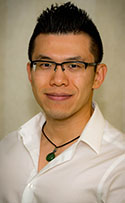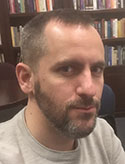Let us start by expressing our gratitude to you for agreeing to review a proposal or manuscript for the Studies in Writing & Rhetoric series. Reviews and reviewers like you are a vital part of SWR’s mission to support “a broad range of projects that accurately represent the diverse identities of teachers, learners, administrators, and researchers involved in writing, rhetoric, and literate activity, addressing the cultural, social, political, and material realities that define their work.”
This page aims to provide guidance and resources such that the editorial and reviewing practices of the series not only help us identify works that maintain the quality and integrity of the series but also support the series’ commitment to identifying, resisting, and intervening in the “inequities and forces of oppression that shape the teaching of writing, rhetoric and literacy.” The CCCC Statement on Editorial Ethics, the “Anti-Racist Scholarly Reviewing Practices: A Heuristic for Editors, Reviewers, and Authors” (2021), and the article “Reviewer as Activist: Understanding Academic Review through Conocimiento” each forward a more justice-oriented approach to reviewing, and we encourage you to consult them at any point during the reviewing process.
We would like to flag a few key points from these documents. In our editorial work involving reviewers and editors, we are committed to ethically supporting authors in the review process. This means educating ourselves about the harms that can be caused through scholarly review practices (here, we might point to many of the scenarios and examples offered in the “Anti-Racist Scholarly Reviewing Practices” heuristic) and taking care to avoid perpetuating those harms in the course of our reviewing and responding to authors’ proposals and manuscripts.
Below are the questions we ask that you center in your reviewer response to proposals and/or manuscripts. You may respond to these questions one by one or compose a 1-2-page letter that engages these questions holistically. In your letter, without de-anonymizing yourself, we encourage you to help authors understand what kind of reader you are; this helps us and authors understand how to situate your feedback and engage it. Please use gender-neutral terms when referring to author(s), and craft your letter and comments to the author(s) in a way that supports them in realizing their goals for the project even if you are not encouraging SWR to move forward with it.
● What do you see as the major contribution of this proposal/project?
● What audiences do you see as centered in the project? In what ways does the project respond to or engage these audiences?
● How does the project (propose to) extend, intervene in, relate to, or expand on current conversations specific to the field? In other words, how does this research explore the teaching, learning, and practice of writing, rhetoric, and literacy in new and important ways?
● Is the material structurally coherent; that is, does it flow in a way that makes sense to you as a reader?
● Are there areas you would expand, condense, add, or delete altogether? Why or why not?
● Are the methods used clear, well-documented, and ethical?
● Are the data collection and analysis sound?
● Are the analysis and/or results presented in an accessible way supported by the data and/or analysis?
● How do you understand the author’s citational practice? Does the citational practice of the proposal/manuscript reflect an awareness of the place of citation within a larger set of sustained habits and assumptions around labor erasure, canon formation, and cultural impact?
● If you know of existing or forthcoming titles in the area this book covers, please make comparisons to this work.
A crucial element of the reviewing process and ensuring that authors’ work moves through the process in a timely fashion is the submission of reviews within the time frame requested. Please submit your review by the requested due date through the Editorial Manager site (log in as a Reviewer). Of course we understand that sometimes timelines need to be shifted; please reach out at any time if you need to negotiate a different timeline or have questions about the review or the review process.
Warmly,
Stephanie Kerschbaum, SWR editor
kersch@uw.edu
Taiko Aoki-Marcial, SWR associate editor
taikoa@uw.edu

 Cassandra Woody is an assistant teaching professor in the First-Year Composition Department at the University of Oklahoma, where she coauthored the first-year composition curriculum. Her research interests include feminist rhetorics, feminist writing program administration, rhetorical theory, and composition studies. Her area of focus is currently housed within first-year composition. As a researcher and teacher, she is concerned with the way rhetorics and the teaching of them may move students to recognize power, privilege, and the fluidity of one’s subject position within rhetorical negotiations.
Cassandra Woody is an assistant teaching professor in the First-Year Composition Department at the University of Oklahoma, where she coauthored the first-year composition curriculum. Her research interests include feminist rhetorics, feminist writing program administration, rhetorical theory, and composition studies. Her area of focus is currently housed within first-year composition. As a researcher and teacher, she is concerned with the way rhetorics and the teaching of them may move students to recognize power, privilege, and the fluidity of one’s subject position within rhetorical negotiations. Scott Wible is an associate professor in the English Department, director of the Professional Writing Program, and a faculty fellow in the Academy for Innovation & Entrepreneurship at the University of Maryland, College Park.
Scott Wible is an associate professor in the English Department, director of the Professional Writing Program, and a faculty fellow in the Academy for Innovation & Entrepreneurship at the University of Maryland, College Park.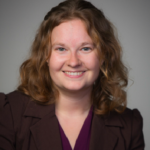 Dana Lynn Driscoll is a professor of English at Indiana University of Pennsylvania, where she directs the Kathleen Jones White Writing Center and teaches in the Composition and Applied Linguistics doctoral program. She currently serves as coeditor for the open-source first-year writing textbook series Writing Spaces, which offers free readings and instructional materials for composition courses. She has published widely on writing transfer, learning theory, writing centers, and research methods and has offered plenary addresses and workshops around the globe. Her coauthored 2012 article with Sherry Wynn Perdue won the IWCA’s Outstanding Article Award.
Dana Lynn Driscoll is a professor of English at Indiana University of Pennsylvania, where she directs the Kathleen Jones White Writing Center and teaches in the Composition and Applied Linguistics doctoral program. She currently serves as coeditor for the open-source first-year writing textbook series Writing Spaces, which offers free readings and instructional materials for composition courses. She has published widely on writing transfer, learning theory, writing centers, and research methods and has offered plenary addresses and workshops around the globe. Her coauthored 2012 article with Sherry Wynn Perdue won the IWCA’s Outstanding Article Award. S. Rebecca Leigh is a professor in the Department of Reading and Language Arts at Oakland University in Rochester, MI. Her research interests include multiple ways of knowing, writing, teacher, and doctoral education. Her current research focuses on how access to art serves as a pathway to literacy learning and its impact on students as writers. Her work has appeared in Language Arts, English Journal, and Journal of Adolescent and Adult Literacy. Leigh can be reached at
S. Rebecca Leigh is a professor in the Department of Reading and Language Arts at Oakland University in Rochester, MI. Her research interests include multiple ways of knowing, writing, teacher, and doctoral education. Her current research focuses on how access to art serves as a pathway to literacy learning and its impact on students as writers. Her work has appeared in Language Arts, English Journal, and Journal of Adolescent and Adult Literacy. Leigh can be reached at  Nadia Francine Zamin is an assistant professor of the practice at Fairfield University. Her academic work centers around supporting faculty teaching writing across the curriculum, mindfulness interventions in composition, and writing program assessment, while her research is concerned with the cultures surrounding learning and on the creation of healthy and sustainable learning and composing environments for student and faculty writers. Her work has also appeared in Across the Disciplines.
Nadia Francine Zamin is an assistant professor of the practice at Fairfield University. Her academic work centers around supporting faculty teaching writing across the curriculum, mindfulness interventions in composition, and writing program assessment, while her research is concerned with the cultures surrounding learning and on the creation of healthy and sustainable learning and composing environments for student and faculty writers. Her work has also appeared in Across the Disciplines. Antonio Byrd is an assistant professor of English at the University of Missouri-Kansas City. He teaches Black/African American literacy histories, digital rhetoric, multimodal composition, and professional and technical writing. Byrd researches how Black/African American adults learn and use computer programming to address racist policies and create sustainable futures for their communities. His work has appeared in Literacy in Composition Studies.
Antonio Byrd is an assistant professor of English at the University of Missouri-Kansas City. He teaches Black/African American literacy histories, digital rhetoric, multimodal composition, and professional and technical writing. Byrd researches how Black/African American adults learn and use computer programming to address racist policies and create sustainable futures for their communities. His work has appeared in Literacy in Composition Studies. Rachael W. Shah is an assistant professor of English at University of Nebraska–Lincoln, where she teaches graduate and undergraduate courses in community literacy, public rhetoric, and teacher education. Her current book project explores community perspectives of university-community partnerships. Former director of the Wildcat Writers program, she now coordinates a similar program called Husker Writers in Nebraska.
Rachael W. Shah is an assistant professor of English at University of Nebraska–Lincoln, where she teaches graduate and undergraduate courses in community literacy, public rhetoric, and teacher education. Her current book project explores community perspectives of university-community partnerships. Former director of the Wildcat Writers program, she now coordinates a similar program called Husker Writers in Nebraska.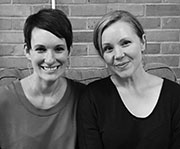
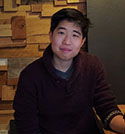 V. Jo Hsu is an assistant professor of English and the associate director of the Program in Rhetoric and Composition at the University of Arkansas. Their research and teaching focus on the interrelations among identity, narrative writing, and struggles for social justice. Their current project examines intergenerational narratives among queer Asian Americans and considers what these archives can teach us about our cultural and academic institutions, as well as how they might help us envision more inclusive pedagogical theories and practices. Jo has yet to find a third-person pronoun that feels entirely like home.
V. Jo Hsu is an assistant professor of English and the associate director of the Program in Rhetoric and Composition at the University of Arkansas. Their research and teaching focus on the interrelations among identity, narrative writing, and struggles for social justice. Their current project examines intergenerational narratives among queer Asian Americans and considers what these archives can teach us about our cultural and academic institutions, as well as how they might help us envision more inclusive pedagogical theories and practices. Jo has yet to find a third-person pronoun that feels entirely like home.